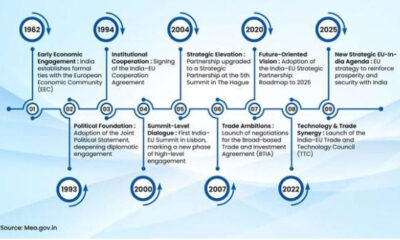India Tightens Rules for Foreign Lawyers: 60-Day Cap, Client Disclosure Mandatory
India has issued new, stricter rules for foreign lawyers operating in the country, requiring them to notify the Bar Council of India (BCI) before arrival and disclose key client details. The updated regulations, released this week, follow India’s 2023 decision to open its legal market to foreign law firms, allowing them to advise on non-litigious international and foreign law matters such as mergers and acquisitions and corporate law.
While foreign lawyers were previously allowed to work in India under a “fly-in, fly-out” model, the latest guidelines introduce significant compliance requirements. Lawyers who do not open formal offices in India but intend to visit temporarily must now submit a declaration to the BCI with details of the work, the client’s name and contact information, and the duration of their stay.
Crucially, the rules reiterate that foreign lawyers are not permitted to stay in India for more than 60 days in any 12-month period.
“Any foreign lawyer or law firm shall be required to inform the Bar Council of India before its arrival in India and shall also intimate about the details of the work and its duration of its stay in India,” the regulations state.
While the 2023 liberalisation was hailed as a long-overdue step toward globalising India’s legal market, the latest restrictions have sparked criticism from legal professionals who argue that they undercut the very intent of the reform.
“Under the garb of relaxing barriers, this is actually like taking several steps backwards,” said Akash Karmakar, a partner at Indian law firm Panag & Babu, which collaborates with foreign counsel. He added that Indian clients often prefer foreign lawyers for specialist advice, such as on overseas stock listings, and the new compliance burdens could slow down such work.
The Bar Council has not yet issued a formal response to the criticisms but described the new measures as “strict guidelines” aimed at safeguarding the interests of Indian lawyers.
Lawyers also voiced concerns about confidentiality, as the rules require foreign counsel to disclose client information to a regulatory body. Salman Waris, managing partner at TechLegis, said this may deter international lawyers and force them to set up formal offices — a move that comes with its own legal and logistical complications.
The new framework also requires law firms wishing to establish offices in India to secure a no-objection certificate from the Indian government, confirming that the legal system in their home country is effective.
Despite initial optimism after the 2023 reforms, few major foreign law firms have established a presence in India. Lawyers say the new rules provide greater clarity but may also make the path to entry steeper for international legal players.
IT.




























